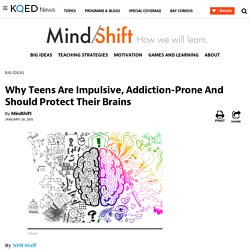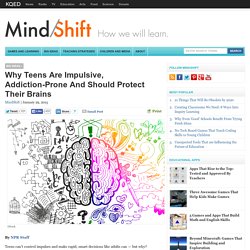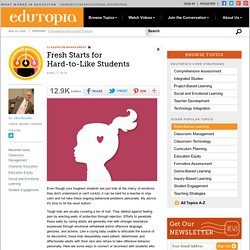

Edutopia. Phrases like "random acts of kindness" and "pay it forward" have become popular terms in modern society.

This could perhaps be best explained by those who have identified a deficiency in their lives that can only be fulfilled by altruism. It seems there are good reasons why we can't get enough of those addictive, feel-good emotions, as scientific studies prove there are many physical, emotional, and mental health benefits associated with kindness. As minds and bodies grow, it’s abundantly clear that children require a healthy dose of the warm-and-fuzzies to thrive as healthy, happy, well-rounded individuals. Patty O'Grady, PhD, an expert in neuroscience, emotional learning, and positive psychology, specializes in education. She reports: Kindness changes the brain by the experience of kindness. A great number of benefits have been reported to support teaching kindness in schools, best summed up by the following. Happy, Caring Children Greater Sense of Belonging and Improved Self-Esteem. 15 Ways to Calm an Anxious Child When Words Don't Work. Why Teens Are Impulsive, Addiction-Prone And Should Protect Their Brains.
By NPR Staff Teens can’t control impulses and make rapid, smart decisions like adults can — but why?

Research into how the human brain develops helps explain. In a teenager, the frontal lobe of the brain, which controls decision-making, is built but not fully insulated — so signals move slowly. “Teenagers are not as readily able to access their frontal lobe to say, ‘Oh, I better not do this,’ ” Dr. Frances Jensen tells Fresh Air‘s Terry Gross. Jensen, who’s a neuroscientist and was a single mother of two boys who are now in their 20s, wrote The Teenage Brain to explore the science of how the brain grows — and why teenagers can be especially impulsive, moody and not very good at responsible decision-making.
“We have a natural insulation … called myelin,” she says. This insulation process starts in the back of the brain and heads toward the front. “The last place to be connected — to be fully myelinated — is the front of your brain,” Jensen says. Interview Highlights Copyright 2015 NPR. Why Teens Are Impulsive, Addiction-Prone And Should Protect Their Brains. iStock By NPR Staff Teens can’t control impulses and make rapid, smart decisions like adults can — but why?

Research into how the human brain develops helps explain. In a teenager, the frontal lobe of the brain, which controls decision-making, is built but not fully insulated — so signals move slowly. “Teenagers are not as readily able to access their frontal lobe to say, ‘Oh, I better not do this,’ ” Dr. Jensen, who’s a neuroscientist and was a single mother of two boys who are now in their 20s, wrote The Teenage Brain to explore the science of how the brain grows — and why teenagers can be especially impulsive, moody and not very good at responsible decision-making. “We have a natural insulation … called myelin,” she says. This insulation process starts in the back of the brain and heads toward the front. “The last place to be connected — to be fully myelinated — is the front of your brain,” Jensen says. Interview Highlights On why teenagers are more prone to addiction Copyright 2015 NPR.
Fresh Starts for Hard-to-Like Students. Even though your toughest students are just kids at the mercy of emotions they don't understand or can't control, it can be hard for a teacher to stay calm and not take these ongoing behavioral problems personally.

My advice: it's time to hit the reset button! Tough kids are usually covering a ton of hurt. They defend against feeling pain by erecting walls of protection through rejection. Efforts to penetrate those walls by caring adults are generally met with stronger resistance expressed through emotional withdrawal and/or offensive language, gestures, and actions. Like a crying baby unable to articulate the source of its discomfort, these kids desperately need patient, determined, and affectionate adults with thick skin who refuse to take offensive behavior personally. 1. At a seminar that I gave at a school in Houston, one of the teachers talked about the turn-around in a boy from her class the year before who had been driving her crazy. 2. You really hung in there by _______. 3.